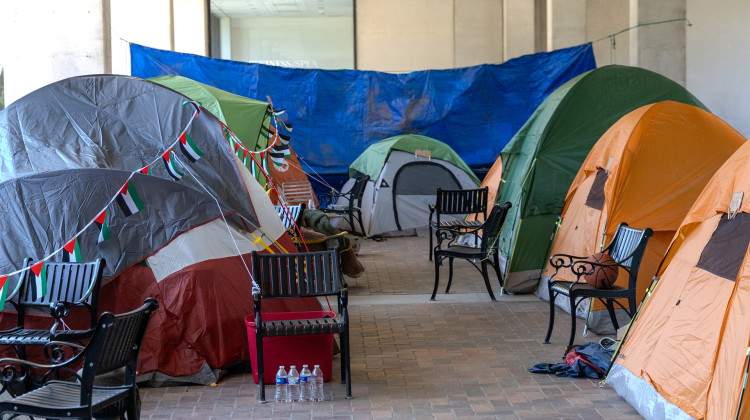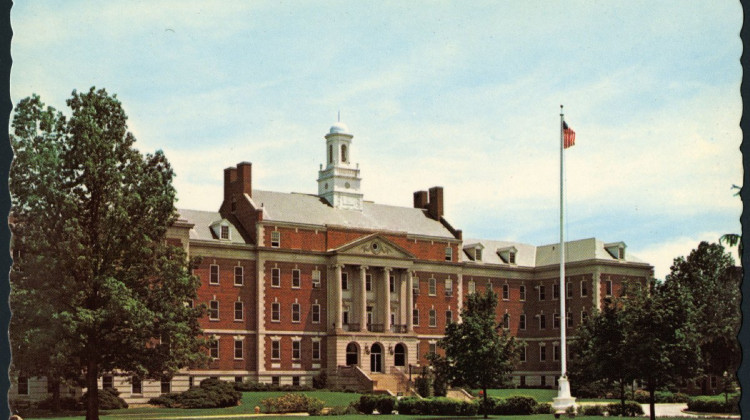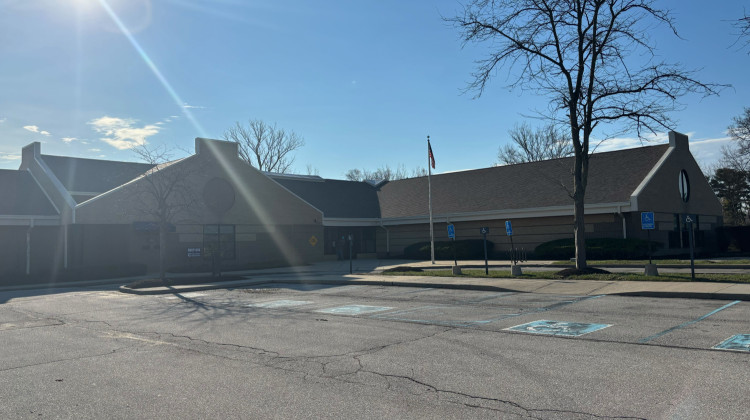
Tents house members of the "Liberated Zone" at the pro-Palestinian encampment at IU Indianapolis.
Zach Bundy / WFYI Newsby Claire Rafford
The Indiana University board of trustees approved a new policy Monday that will effectively shut down a three-month pro-Palestinian encampment at IU Indianapolis.
In a news release, board of trustees Chair W. Quinn Buckner said arrests and chaos at an IU Bloomington pro-Palestinian protest in April led the board to update and standardize policies across all campuses.
“We can’t let one person or group’s expression infringe on the rights of others, disrupt learning experiences for our students or interrupt regular university business,” Buckner said in the release.
Members of the Indianapolis encampment say the policy is targeted at the pro-Palestinian student movement and will limit their freedom of speech.
Layth Abdulbari, a leader in the encampment and student at IUPUI, said though he is sad that the policy passed, he and the other members of the camp are looking into other ways to protest and build community. They are eventually planning to take legal action against the university.
“We’re really going to respond with action,” the 21-year-old said. “That’s going to be our primary response.”
Students have been camping out under the Kelley School of Business on IU Indianapolis’ campus since April 26 to protest Israel’s invasion of Gaza following the Hamas missile strike on Oct. 7. The students also are demanding that IU divest from Israel and the Crane naval base.
Abdulbari said that though the students plan to pack up the encampment in the next few days, they feel their presence did make a difference.
“The policy being made is an example and a testament to us being heard, because they refuse to listen, but they hear us,” he said. “There’s something to say about that.”
Organized by the Palestinian Solidarity Committee at IUPUI, the encampment is one of the few remaining in the country after pro-Palestinian protests swept college campuses across the country this spring.
What’s in the new policy?
The new policy will ban all camping, no matter the time of day, unless it is part of a university-approved event. It also prohibits protest activity from 11 p.m. to 6 a.m. A draft of the policy released in June only banned overnight camping.
The policy also bars demonstrations within 25 feet of building entrances, requires that temporary structures such as tents be approved 10 days in advance, mandates pre-approval for hanging signs and symbols on university-owned property, including lampposts, and prohibits amplified noise that “materially and substantially” disrupts university life.
The newly-approved protocol also includes limits on where and how students can write messages. Students can still draw with washable chalk on sidewalks, but cannot display messages on other university buildings, lampposts or walls; or write with permanent or semipermanent substances on any university property.
The new policy will take effect Aug. 1.
 DONATE
DONATE






 Support WFYI. We can't do it without you.
Support WFYI. We can't do it without you.